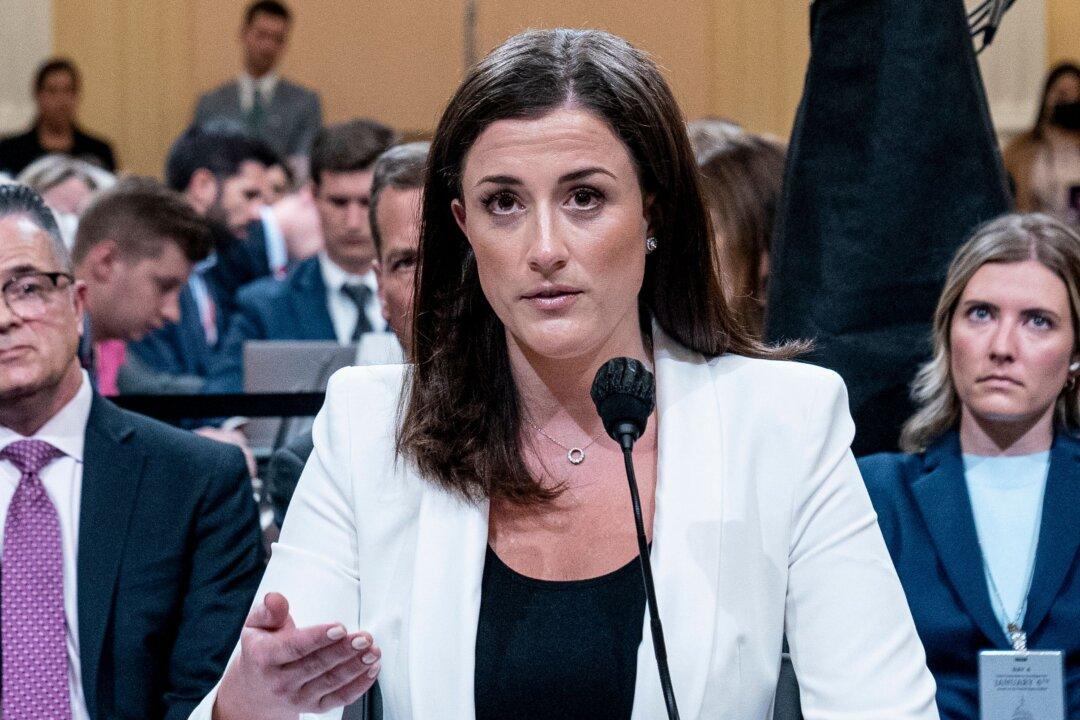Most of Cassidy Hutchinson’s testimony this week in front of the Jan. 6 Committee would not be allowed in court, according to Pennsylvania Republican trial attorney Wally Zimolong.
Hutchinson, 25, is the former aide to President Donald Trump’s chief of staff Mark Meadows. She testified that Trump protested in a car when a Secret Service agent told him they would not take him from the site of his speech to the Capitol where people were gathering. Trump lunged for the car’s steering wheel and then toward the agent, she told the committee.





